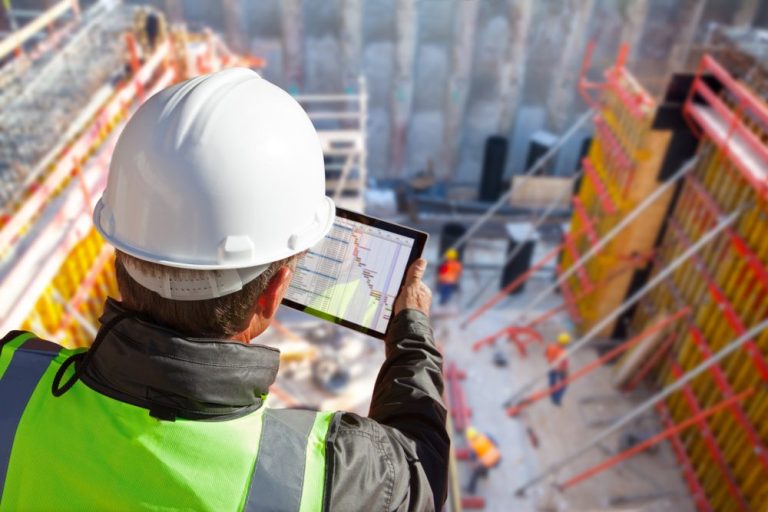Togal.AI CEO: AI Can Solve for 75% of Construction Frictions

Moore’s law is getting an artificial intelligence (AI) makeover.
This, as rather than the pace of technology doubling every two years, as posited in 1965 by Gordon Moore — one of the godfathers of the semiconductor industry — advancements in next-generation computing capability have rapidly accelerated to a degree never before thought possible now that we’ve entered the age of generative AI.
“Things are doubling every few weeks, two months,” Patrick Murphy, Founder and CEO at construction technology company Togal.AI, told PYMNTS in a conversation about recent advances in generative AI’s commercial applications.
Moore’s law has been completely “blown away,” he added.
“In just the four-year period [since founding Togal.AI] it’s been unbelievable to watch the advance of AI and how the models and algorithms we were using then have improved now,” Murphy said.
He emphasizes that advances in access to data, particularly around how it is stored and labeled, have continued to evolve rapidly, helping form a critical background for the AI ecosystem’s exponential growth curve.
A technical ecosystem is transforming how even traditional businesses like construction operate.
Read More: Generative AI Tools Center of New Regulation-Innovation Tug of War
Simple Implementations of Increasingly Powerful Technology
From the 1970s to today, most industries saw a 290% increase in productivity.
Most industries, that is, except construction, Murphy said. Productivity within the construction industries has remained unchanged — a 0% increase over at least the past half a century.
“There’s so much information in construction, from the actual plans, the blueprints, the spec books, all the various contracts across owners, suppliers, third parties; and not to mention the legal documentation for each build, the schedules, budgets, and other various architectural plans. The list goes on and on,” Murphy said, noting that field teams are constantly rooting through documents and saved PDFs, searching for the right information they need at that particular moment.
The reality of the construction industry today is one of “constant friction” around surfacing relevant information, he said.
That’s why he sees tremendous potential in using generative AI to “reduce friction with all the documentation” and “consolidate the thousands of pages” for every project so that humans are no longer wasting time and energy on problems that are ultimately tangential to the execution of a build.
“[The construction industry] has a really high ceiling for growth as far as implementing this kind of technology,” Murphy says.
See Also: How Truly Responsive and Intelligent AI will Change Business
Removing Historical Redundancies to Make Way for Growth
In construction, almost every time you build a job, it’s as if it is the first time it is ever being built, Murphy said.
“All the learnings from scheduling and pricing, from budgeting and warranty issues — all that information is forgotten unless you personally remember it and apply it to the next job. There’s no data that gets stored and then revisited,” he said.
Therein lies the big breakthrough of leveraging generative AI solutions.
“We’ve spent the last three years labeling hundreds of thousands of plans and literally millions of objects on blueprints in a very consistent, very accurate manner so our algorithms can read and make sense of them.” It was a very time-intensive process, Murphy notes, but ultimately critical to putting his AI platform in a unique position.
Having recently announced an integration with ChatGPT, Murphy said that Togal.AI users can now interact with that library of construction data as though “having a conversation in layman’s terms … asking things like, ‘What are the specs for the exterior appliances in this building?’ or ‘How many toilets are in a building this size?’ It’s just like two people talking.”
It sounds simple, he adds, but “silly errors” tend to plague the construction industry daily — they aren’t intentional, but things fall through the cracks on every job. Murphy said that “generative AI can solve 75%” of construction profit fade in the near future.
“With [AI] we can finally, in an efficient and affordable manner, learn from all the data that is out there and apply it to future jobs.”
As for what the Togal.AI CEO is looking forward to most?
It’s continuing to leverage today’s incredible processing power and technical capabilities to “provide a better built environment for more people. Technology is really going to help put more people in better homes.”